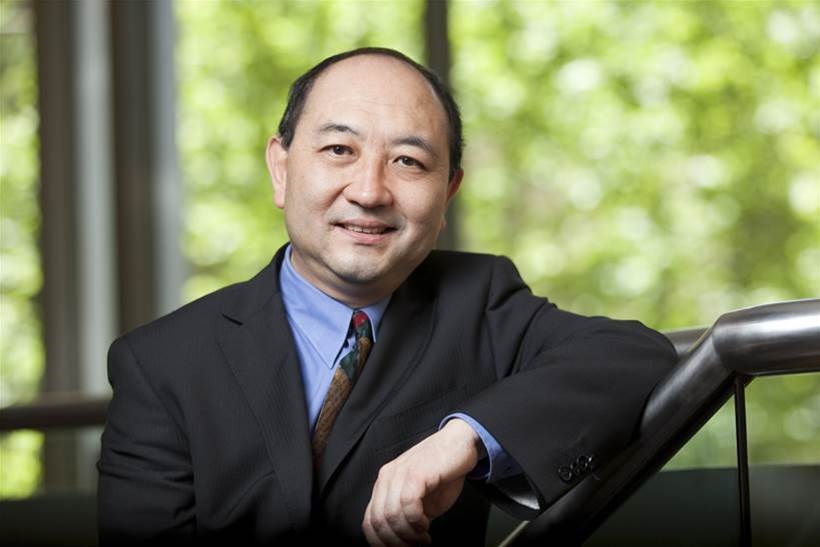“Speed is the essence of war. Take advantage of the enemy's unpreparedness; travel by unexpected routes and strike him where he has taken no precautions.” So wrote Chinese military strategist Sun Tzu in his classic, The Art of War.
I was recently in China, in a region where Sun Tzu lived around 500 BC. Despite the time difference, Sun Tzu’s insights are highly applicable to modern warfare, which experts predict will increasingly be fought in cyberspace, using technology to block communications and cripple infrastructure.
The importance of cybersecurity precautions cannot be overstated, which is why the Australian Computer Society (ACS) has release its new guide: Cybersecurity: Threats, Challenges, Opportunities. It seeks to raise awareness and educate on the risks of cyber threats, which can affect everyone from an individual with a smartphone to business and enterprise, and even our entire nation.
At the Australia-US Cyber Security Dialogue in September, Prime Minister Turnbull said, "For each large enterprise, there are many small businesses putting a toe in the water of the online world. They are connected to you as suppliers, distributors and contractors. Many are far less secure, far less savvy, far less resourced than governments and big business. Or at least, than governments and big businesses should be.”
The ACS has long played an active role in raising awareness of cyberthreats, supporting the Government with expert advice back in 2011 and providing a coordinating role for an industry response. At the time, we used this column to challenge the Government to: “establish a central authority to coordinate both the policy development and operational aspects of Australia’s cybersecurity framework to ensure an integrated and congruent approach to any cyber-related initiatives.”
That call was answered with the formation in 2013 of the Australian Cyber Security Centre (ACSC), an umbrella body which brings together the cybersecurity activities of the key security-related agencies: the Australian Signals Directorate (ASD), Defence Intelligence Organisation (DIO), Australian Security Intelligence Organisation (ASIO), Computer Emergency Response Team (CERT) Australia, Australian Criminal Intelligence Commission (ACIC) and the Australian Federal Police (AFP).
We also welcome the recent appointment of Dr Tobias Feakin as Australia's inaugural Ambassador for Cyber Affairs to work closely with Dan Tehan, the Minister Assisting the Prime Minister for Cyber Security and Alastair MacGibbon, Special Adviser to the Prime Minister on Cyber Security, in providing leadership and advocacy on cybersecurity policy and strategy.
In October this year, the ACSC released its second Threat Report, highlighting the severity and breadth of cyber intrusions in the 2016 financial year.
Between July 2015 and June 2016, CERT Australia responded to 14,804 cybersecurity incidents affecting Australian businesses, 418 involving systems of national interest (SNI) and critical infrastructure (CI). At the same time, the ASD responded to 1,095 cybersecurity incidents on government systems which were serious enough to warrant operational responses.
We are seeing significant growth and convergence of technologies including big data, the Internet of Things (IoT), mobility, cloud computing, artificial intelligence, robotics and more. As technology continues to innovate, enhance, challenge and disrupt our world in new and different ways, cybersecurity will only grow in importance.
In May, Leon Strous, President of IFIP, the global professional body established in 1960 under the auspices of UNESCO and of which the ACS is a member, took part in the strategic European Foresight Cyber Security Meeting. He highlighted the critical role that professionalism plays in building trustworthy, reliable and secure ICT systems, saying, “cyber security and cyber resilience is also a duty of care of the individual ICT professional”.
Last week, the ACS played host to a Ministers Forum in Sydney where the Victorian Minister for Small Business, Innovation and Trade, Philip Dalidakis, lead a panel of international cybersecurity experts to explore: “Global approaches to building resilience, the cybersecurity ecosystem and staying on top of old and new threats”.
The panellists included Elly van den Heuvel, Secretary to the Dutch Cyber Security Council, which is calling for the harmonisation of Legal Frameworks and Duties of Care to enable a consistent and reliable approach to cybersecurity and IoT, and to address issues of professionalism and standards.
As part of our commitment to enabling Australian security professionalism, the ACS supported Minister Tehan at his inaugural address, 'A Cyber Storm' at the National Press Club in Canberra last week.
The book “Ghost Fleet” by P.W. Singer is being touted around Canberra as an example of how future wars will be fought. It offers a chilling insight into a world where technology plays a defining role in determining success or failure … and a clear warning to be prepared.
Anthony Wong is President of the ACS and Chief Executive of AGW Consulting P/L, a multidisciplinary ICT, Intellectual Property Legal and Consulting Practice.










